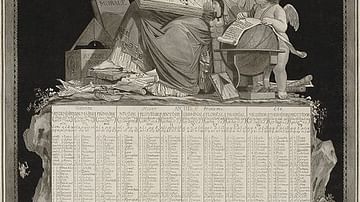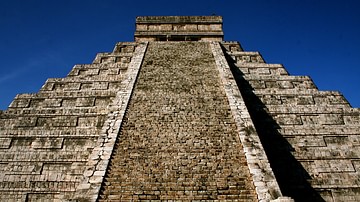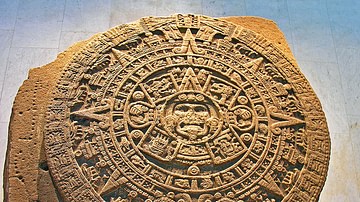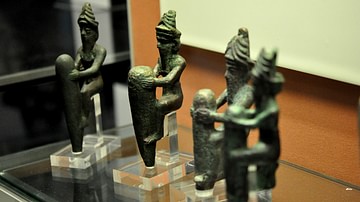Search
Remove Ads
Advertisement
Summary 
Loading AI-generated summary based on World History Encyclopedia articles ...
Search Results

Definition
French Republican Calendar
The French Republican calendar, also known as the French Revolutionary calendar, was created during the French Revolution (1789-1799) in an attempt to build a new society separate from the vestiges of the Ancien Régime. First implemented...

Article
The Athenian Calendar
The term “Athenian Calendar” (also called the “Attic Calendar”) has become somewhat of a misnomer, since Ancient Athenians never really used just one method to reckon the passage of time. Athenians, especially from the 3rd Century BCE forward...

Article
The Maya Calendar and the End of the World: Why the one does not substantiate the other
The Popol Vuh recounts the story of twins who journeyed to Xibalba. For the Maya, their round of adventures serves as a metaphor for timeless, repeating cycles and for the regeneration of earth and all living things. – Gene S. Stuart, Mayanist...

Article
The Aztec Calendar
The Aztecs of ancient Mexico measured time with a sophisticated and interconnected triple calendar system which followed the movements of the celestial bodies and provided a comprehensive list of important religious festivals and sacred dates...

Article
Ancient Mesopotamian Beliefs in the Afterlife
Unlike the rich corpus of ancient Egyptian funerary texts, no such “guidebooks” from Mesopotamia detail the afterlife and the soul's fate after death. Instead, ancient Mesopotamian views of the afterlife must be pieced together from a variety...

Definition
Mesopotamian Religion
Mesopotamian religion was central to the people's lives. Humans were created as co-laborers with their gods to hold off the forces of chaos and to keep the world running smoothly. As in ancient Egypt, the gods were honored daily for providing...

Article
The Mesopotamian Pantheon
The gods of the Mesopotamian region were not uniform in name, power, provenance or status in the hierarchy. Mesopotamian culture varied from region to region and, because of this, Marduk should not be regarded as King of the Gods in the same...

Definition
Mesopotamian Science and Technology
Mesopotamian science and technology developed during the Uruk Period (4100-2900 BCE) and Early Dynastic Period (2900-1750 BCE) of the Sumerian culture of southern Mesopotamia. The foundation of future Mesopotamian advances in scientific/technological...

Definition
Mesopotamian Literature
Ancient Mesopotamian literature developed c. 2600 BCE after scribes, who had formerly been record keepers, began composing original works in the region of Sumer. The Sumerians invented writing c. 3500 BCE, refined the script c. 3200 BCE...

Definition
Mesopotamian Art and Architecture
Ancient Mesopotamian art and architectural works are among the oldest in the world, dating back over 7,000 years. The works first appear in northern Mesopotamia prior to the Ubaid Period (c. 5000-4100 BCE) and then developed in the south...